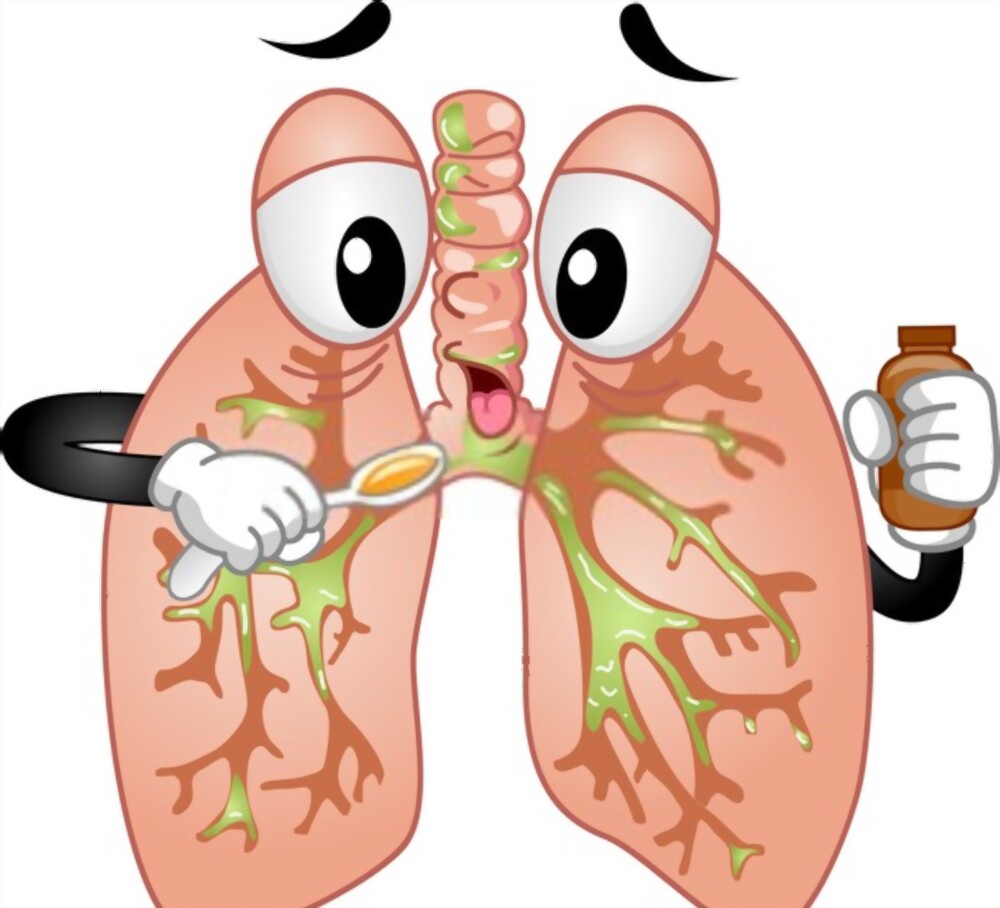
A dry cough is also known as an ineffective cough. Dry coughs, unlike productive wet coughs, are incapable of removing mucus, phlegm, or irritants from your lungs or nasal passages.
Dry coughs can last for weeks after a cold or the flu. They can also be caused by a variety of conditions, including:
postnasal drip is an abbreviation for postnasal drip
asthma
GERD is an abbreviation for acid reflux.
They could also be a long-term side effect of environmental toxins like cigarette smoke.
Dry coughs are very unpleasant and can affect both children and adults. There are a variety of clinical treatments available to help you deal with them, but there are also at-home remedies that can be just as effective in many cases.
Supplements and herbs
There are no one-size-fits-all home remedies for dry cough. You may need to try a few different ones before you find the ones that work best for you.
Furthermore, not all of these treatments have been thoroughly researched and proven to be effective. Some treatments are also unsuitable for infants or children.
Honey
It can be used to treat daytime and nighttime dry coughing in adults and children aged one and up.
Honey has antibacterial properties and can coat the throat, reducing irritation.
According to one study published in 2007Trusted Source, honey was more effective than dextromethorphan, a cough suppressant ingredient, in reducing nagging bouts of nighttime coughing in children.
Take a teaspoon of honey several times per day, or mix it into tea or warm water to drink.
Never give honey to a child under the age of one year to avoid infant botulism, a rare complication that can occur in infants.
Turmeric
Turmeric, a compound found in turmeric, may have anti-inflammatory, antiviral, and antibacterial properties. It may also help with a variety of conditions, including a dry cough.
When taken with black pepper, curcumin is more easily absorbed into the bloodstream. To drink, mix 1 teaspoon turmeric and 1/8 teaspoon black pepper into a beverage, such as cold orange juice. It can also be prepared as a warm/hot tea.
Turmeric has been used for centuries in Ayurvedic medicine to treat upper respiratory conditions, bronchitis, and asthma.
Turmeric is available as a spice as well as a capsule.
Ginger
Ginger is both antibacterial and anti-inflammatory. It has also been shown to boost the immune system and alleviate pain and discomfort.
Many teas contain ginger as an ingredient. Ginger root can also be used to make ginger tea by steeping the peeled or cut root in warm water. The addition of honey may make it even more effective for dry cough.
To relieve a dry cough, you can also take ginger capsules or chew on ginger root.
Peppermint
Menthol, which is found in peppermint, helps to numb nerve endings in the throat that are irritated by coughing. This may provide pain relief as well as a reduction in the desire to cough.
Peppermint also relieves congestion and has antibacterial and antiviral properties, according to Trusted Source.
Peppermint can be consumed in a variety of ways. Consuming peppermint tea or sucking on peppermint lozenges are two examples. To help relieve nighttime coughs, drink peppermint tea right before bed.
Peppermint essential oil can also be used as an aromatherapy treatment.
Marshmallow root
Marshmallow root is a plant that belongs to the herb family. To relieve a dry cough, it is used in cough syrup and lozenges.
A survey-based research project
It is an effective treatment for soothing the throat and reducing the irritation caused by dry cough, according to Trusted Source.
Marshmallow root may have antibacterial properties as well.
Masala Chai (Spiced Tea)
In recent years, the flavour of chai tea has grown in popularity in the United States. Chai is used to treating conditions such as sore throats and dry coughs in India.
Cloves and cardamom are two antioxidant-rich ingredients in masala chai. Cloves can also be used as an expectorant.
Cinnamon, which has anti-inflammatory properties, is also found in tea.
Capsaicin is a type of chilli pepper.
Capsaicin, a compound found in chilli peppers, has been shown to reduce chronic coughing Trusted Source.
It can be taken as a capsule, but it can also be made into a tea with cayenne pepper hot sauce and warm water.
Cayenne peppers are a type of chilli pepper. Add a few drops of cayenne hot sauce to the water, tasting as you go to ensure you don’t go over your heat tolerance. Chilli peppers can also be purchased whole and steeped in warm water.
Children are not advised to use capsaicin-based treatments.
Aromatherapy with eucalyptus
Aromatherapy is the use of essential oils to calm and heal.
Eucalyptus essential oil, which acts as a decongestant, may help relieve dry cough. Use eucalyptus in a diffuser, spritzer, or inhaler. You can also add a few drops to a bowl of hot water and inhale the steam.
If nighttime coughing has been keeping you awake, scenting your room with eucalyptus may help you get a better night’s sleep.
Make use of a humidifier.
A dry cough can be exacerbated by dry air. Humidifiers add moisture to the air, which can be soothing.
Humidifiers aid in the opening of the sinuses, making them useful for nagging postnasal drip.
If your home has dry air, keep a humidifier running in your bedroom to help reduce dry coughing while sleeping.
Make use of an air purifier.
Air purifiers can assist in the removal of airborne irritants such as dust and smoke from your home. They also help to reduce allergens like pet dander and pollen.
Breathing in clean air can help reduce throat irritation and the desire to cough, whether your cough is caused by environmental toxins or an underlying condition.
Probiotics
Probiotics do not directly alleviate coughing, but they may strengthen the immune system by balancing the bacteria in the gut.
A strong immune system can aid in the fight against infections and allergens that may be causing the cough.
According to research one type of probiotic, Lactobacillus bacteria, has a minor benefit in preventing the common cold.
Lactobacillus and other probiotic supplements are available at health food and drug stores.
Some foods are naturally high in probiotics, such as:
soup with miso
yoghurt made from natural ingredients
kimchi
sauerkraut
Rinse your mouth with saltwater
Gargling with warm salt water can help relieve the pain and irritation caused by a dry cough. Saltwater also aids in the killing of bacteria in the mouth and throat.
In a large glass of warm water, dissolve 1 teaspoon of table salt. Then gargle several times throughout the day.
This dry cough remedy is not recommended for young children because the saltwater may be swallowed.
If you wake up with a sore throat from coughing during the night, gargle with salt water right after brushing your teeth to numb and soothe the nerve endings in your throat.
Steam
A wet cough, or one that produces mucus or phlegm, may benefit from steam. Allow the bathroom to fill with steam after taking a hot shower or bath. Stay in this steam for a few minutes until your symptoms have subsided. After that, drink a glass of water to cool down and prevent dehydration.
Alternatively, you could make a steam bowl. Fill a large bowl halfway with hot water to begin. Add herbs or essential oils like eucalyptus or rosemary to help with decongestion. Lean over the bowl while wearing a towel over your head. This holds the steam in place. For 5 minutes, inhale the vapours. If the steam feels hot on your skin, stop using it until it cools down.
People who have a wet cough or chest congestion may benefit from using a cool-mist humidifier or a steam vaporizer in their home, as recommended by the National Heart, Lung, and Blood InstituteTrusted Source (NHLBI).
Cough syrup with antitussive properties
Cough suppressants work by weakening the cough reflex. This reduces the desire to cough, making them particularly useful for dry coughs.
Some antitussives contain codeine and are only available with a prescription. Others are available without a prescription. These usually include active ingredients like dextromethorphan, camphor, or menthol.
Cough drops
Cough drops are medicated lozenges that are used to lubricate and soothe sore throat tissues. Their ingredients differ, as do their actions.
Menthol, which acts as a numbing agent in cough drops, helps to reduce the urge to cough. Cough drops containing ginger or eucalyptus are also available.
How to Prevent Coughing

In addition to learning how to treat a cough, you should also learn how to avoid getting one in the first place.
Make sure you get your annual flu shot, which usually begins in October, to protect yourself from the flu. Other steps you can take are as follows:
Avoid coming into contact with sick people. If you know you’re sick, don’t go to work or school so you don’t infect others.
When you cough or sneeze, cover your nose and mouth.
Stay hydrated by drinking plenty of fluids.
Clean the common areas of your home, workplace, or school on a regular basis. This is especially important for items such as countertops, toys, and mobile phones.
When should you see a doctor?
Dry coughs can last for months and can be both exhausting and disruptive.
Coughs that are dry usually go away on their own. Consult your doctor if your cough is accompanied by other symptoms. These are some examples:
Having difficulty breathing or catching your breath
wheezing
pain in the chest
backache
fever
chills
Tips To Relieve Aggressive Coughing

Stay hydrated: Drink plenty of water to help thin mucus.
Inhale steam by taking a hot shower or pouring boiling water into a bowl, facing the bowl (at least 1 foot away), draping a towel over the back of your head to form a tent, and inhaling. If you feel uneasy, you can stop at any time. Note: Do not do this if your cough is caused by asthma, as the steam may aggravate your symptoms.
To loosen mucus, use a humidifier.
Elevate your head with an extra pillow at night.
Don’t smoke and stay away from secondhand smoke.
Avoid inhaling irritants like dust, perfumes, and pollutants.
Mint: Taken as a tea, it aids in the loosening of mucus in the lungs.
Menthol is commonly found in lozenges and can help to relieve coughs.
The root of licorice acts as an expectorant.
Slippery elm coats the throat and soothes it.
Apple cider vinegar (diluted or mixed with honey) aids in mucus thinness.
Chocolate. And because the best is saved for last…save some chocolate! Theobromide, a component of chocolate, may suppress vagus nerve activity, which causes coughing.
In conclusion
Consult your doctor if your cough worsens or does not go away after two months.
Dry cough can be both long-lasting and caused by a variety of factors. However, there are several highly effective at-home treatments that can help you get rid of your cough.
Also Read: Trouble Recalling Things That Are On The “Tip Of Your Tongue”? – V Cure (vcurehealthcare.com)





